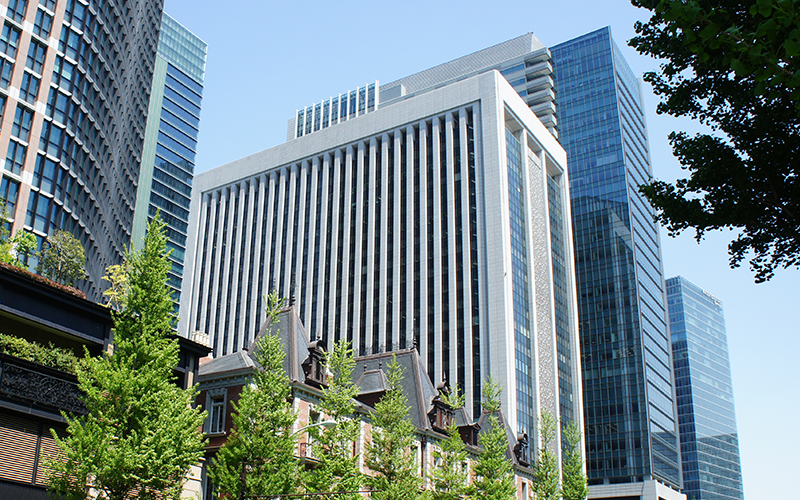It is estimated there are 1.6 billion Muslims living in the world today - equivalent to nearly 25% of the world’s total population - and it is predicted this figure could rise by a third by 2050. While in April last year, Saudi Arabia issued its largest ever Sharia-compliant bond on the Irish Stock Exchange - with the ‘Sukuk’ issuance raising $9 billion in the process and attracting more than $33 billion in oversubscribed orders.

Consequently, the Islamic finance market is attracting attention from investors beyond the Islamic community. Increasingly, we’ve seen non-Muslim corporates and retail clients looking to diversify their portfolios and explore alternative investment solutions which are viewed responsible, sustainable and ethical - a trend that has grown in the aftermath of the financial crisis.
With this in mind, it perhaps won’t be surprising to learn that over the past decade the Islamic finance industry has been growing at an exponential rate - with the total amount of Islamic financial assets globally reaching $1.9 trillion in 2016, quadruple the level seen in 2006.
But what exactly is Islamic Finance, and how does it differ to other global banking models and markets?
The fundamental basis of Islamic finance is ‘sharia finance made in compliance with the tenets of Islam’, which means financial practices are guided in accordance with the religious principles of Islam, as outlined in the Qur’an and the teachings of the Prophet Mohammed. Practically this means that some of the more commonly used and conventional aspects of financial markets, for example interest payments, are prohibited. Similarly, it precludes speculative activity and profiting on ‘uncertain’ transactions, as well as being involved in any transactions or activity that is related to businesses or industries non-compliant with shariah law, for example pork, alcohol and tobacco.
A core component of the Islamic finance market is the ‘sukuk’, a sharia compliant bond. However, where this differs to traditional bonds and securities is they are issued as means of raising funds for purposes in keeping with Shariah requirements and returns do not derive from ongoing interest payments, rather they are paid according to the performance of the underlying assets - for example real estate, not too dissimilar to a lease arrangement.

In recent years, there has been a growing demand for international sukuk among investors, typically those issued in dollars. In fact in 2014, the UK government became the first government of a country outside of the Islamic world to issue a Sharia-compliant sovereign bond. Latest figures by Dealogic show that value of sovereign sukuk, or Islamic bonds, issued outside the Middle East and Southeast Asia by non-Muslim countries reached $2.25 billion last year.
Another relatively new development in the Islamic finance market is the introduction of Shariah ETFs, which provide low-cost exposure to conventional equity markets while strictly adhering to Shariah investment principles. This trend can be observed from the number of new ETFs offered by large mainstream investment houses.
MUFG has been active in the market for a decade, since it first set up its Islamic banking operation in Malaysia in 2008 and became the first Japanese bank in the region to offer Islamic finance solutions - which followed the revisions of the Japanese Banking Act to attract Islamic funds. Since then the bank has broadened out its offering with new Islamic Windows in Kuala Lumpur and most recently Dubai, in the process becoming a leading provider of Islamic finance. To aid this expansion the company is supported by an in-house Shariah Committee, consisting of five Islamic finance scholars in Malaysia, as well as a Shariah Supervisory Board of three world-renowned scholars in Dubai. In recognition of this growth, in September 2017 MUFG was named as the Best Islamic Wholesale Bank by the Global Islamic Finance Awards.

What does 2018 hold for the Islamic finance market?
Following strong demand in recent years it appears there are mixed signals on the horizon for the Islamic finance market.
On the one hand, the sukuk market has been attracting interest from new institutional investors driven by socially responsible investment factors given the common ground shared with ESG investments and this could unlock more opportunities in the future. Similarly, we may see a broadening of retail investors looking to gain exposure to Islamic finance in terms of asset allocation.
However, to the contrary, recent research by S&P Global Ratings suggests that demand is likely to soften from the highs of 2017 due to the resurgence of geo-political risks, a sizable drop in oil prices and continued government investment cuts which are likely to sway some investors. As such the ratings agency expects issuance volumes to hover at $70-$80 billion - down from the peak of $98 billion the previous year.
Similarly the rapid growth of electronic financial transactions, introduction of new technology and the rapid spread of Fintech, has helped support Islamic financial inclusion and enhance Shariah governance and it is likely these will only continue in the years to come.
So much so that the World Bank predicts that by 2020, the Islamic finance industry is projected to reach $3 trillion in total assets with one billion users.
Where next for the $2trn Islamic finance industry ?






